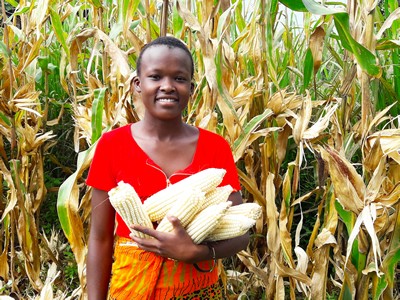GB Spreading In Kenya
Greetings from Common Ground for Africa (CGA), in Kitale, Kenya. I hope you are all doing well and staying safe! With a global pandemic tightening its grip around the world and photos of empty supermarket shelves flooding social media, there’s never been a better time to consider where our food comes from. As shelves continue to remain empty, mini-farms in many villages continue to flourish, thanks to the GROW BIOINTENSIVE (GB) Mini-Farming approach. As the world faces an unprecedented global crisis, experts are linking the emergence of COVID-19 to global habitat and biodiversity loss. Researchers at University College London found that species in degraded habitats are likely to carry more viruses which can infect humans. Agricultural expansion is a major driver of this trend, but agriculture need not mean ecological disruption. It is, in fact, entirely possible to farm with, rather than against, nature, as demonstrated by Ecology Action. Our farmers’ gardens here continue to produce as they require very little effort on a daily basis. This has prompted the County Government of Trans-Nzoia, Kenya, to rethink its approach. GB's performance as observed during this pandemic has convinced the County Director of Agriculture that the best strategy moving the county towards a sustainable food system is to focus on GB. He has requested that CGA increase the number of GB demonstration mini-farms across all five sub-counties in 2021, driving support for GB initiatives in the 2021/22 budget. As we battle COVID-19, we are committed to continuing our work towards a better future where people and nature thrive together while they feed themselves as they grow the soil!
top | Newsletter Home |Table of Contents| Archive
|



